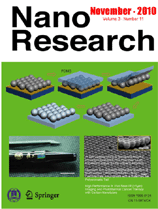We have developed an efficient strategy for the non-covalent functionalization of multi-wall carbon nanotubes (MWCNTs) which allows a biomimetic presentation of carbohydrates on their surface by π-π stacking interactions. The strategy is based on the use of sugar-based amphiphiles functionalized with tetrabenzo[a,c,g,i] fluorene (Tbf), a polyaromatic compound with topology that resembles to a butterfly with open wings. The new carbohydrate-tethered Tbf amphiphiles have been synthesized in a straightforward manner using click chemistry. The reported method is developed to improve the rather low ability of pyrene-based systems to exfoliate MWCNTs in water. By means of thermogravimetric analysis (TGA), ultraviolet (UV), infrared (IR), and fluorescence spectroscopies the interaction between MWCNTs and the Tbf group has been found to be stronger than the one involving pyrene-based amphiphilic carbohydrates. The resulting aggregates with a multivalent sugar exposition on their surface are able to engage specific ligand-lectin interaction similar to glycoconjugates on the cell membrane.
Artículo del mes
Improved non-covalent biofunctionalization of Multi-Walled Carbon Nanotubes using Carbohydrates Amphiphiles with a Butterfly-Like Polyaromatic tail
Mohyeddin Assali, Manuel Pernía Leal, Inmaculada Fernández, Pablo-Romero Gómez, Rachid Baati and Noureddine Khiar
Nano Research, 2010, Vol. 10, 764-778IIQ



 English
English